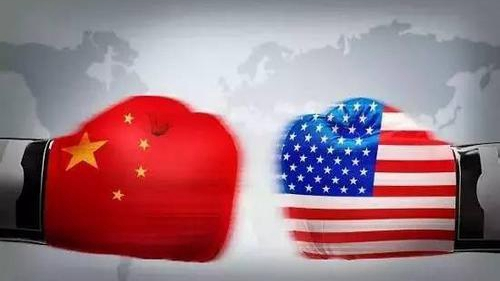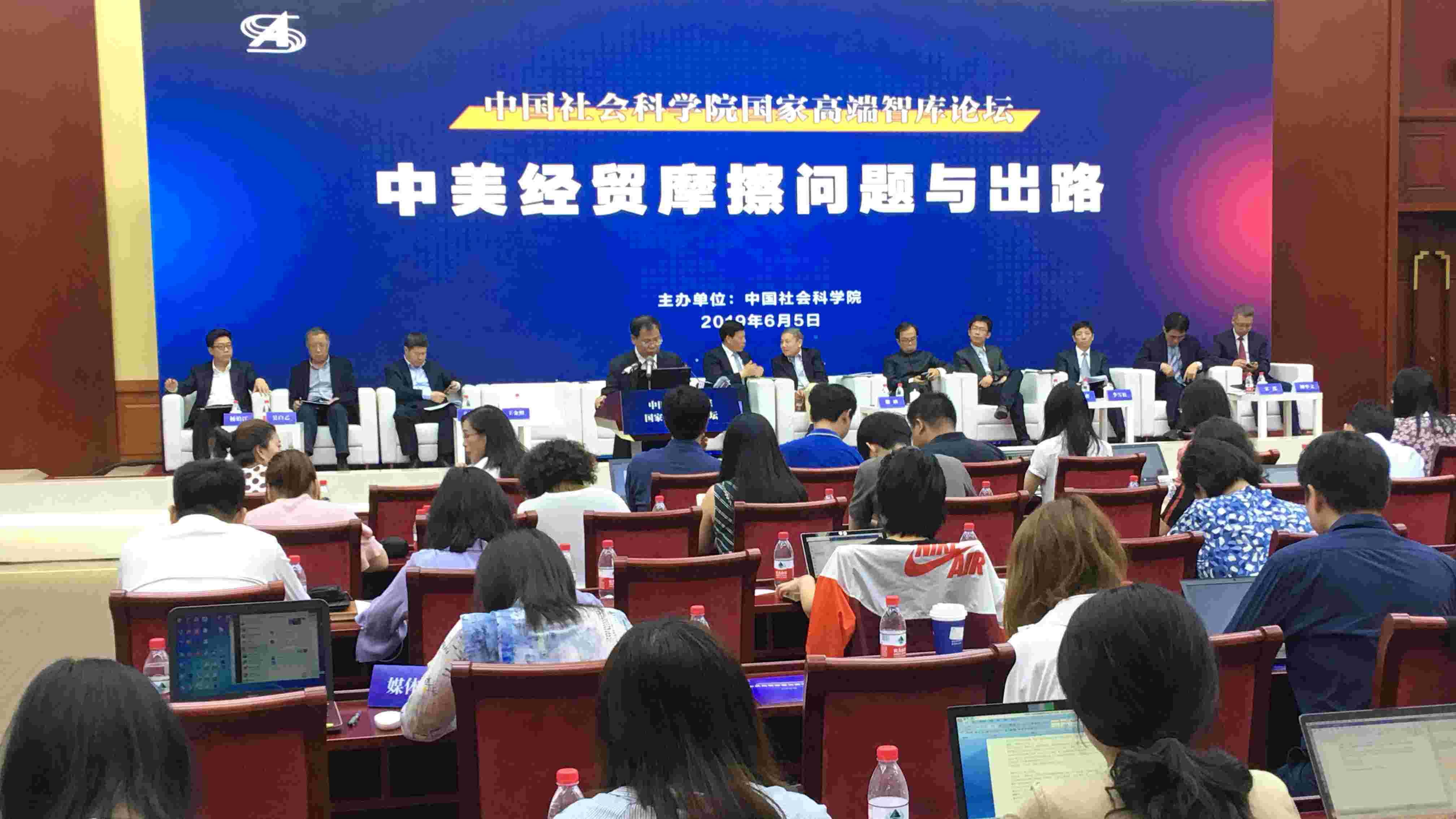
Money Stories
20:46, 05-Jun-2019
Expert: Conflicts will hurt U.S. and global interest
Sun Ye, Zhao Jing

As China-U.S. trade tensions run high, China's top think-tankers say U.S. trade war would damage its own interests and rattle global economy.
At a Chinese Academy of Social Sciences (CASS) forum Wednesday in Beijing, Li Yang, director of the National Institute for Finance and Development at the CASS said that the U.S. has been waging war on false grounds.
“U.S. claimed it's deeply wounded from a 500-billion-U.S.-dollar trade deficit with China. But those who know anything about the international economy will point out that deficit comes in exchange for goods and services, for improved livelihood,” Li said at the forum.
Li also pointed out that the deficit is part of the U.S. dominance in the global financial and economic system.

The Chinese Academy of Social Sciences (CASS) forum on China-U.S. trade conflict is held in Beijing, Wednesday. /CGTN Photo
The Chinese Academy of Social Sciences (CASS) forum on China-U.S. trade conflict is held in Beijing, Wednesday. /CGTN Photo
And as the U.S. imposes tariffs, embargoes on Chinese goods and products, experts say if the U.S. carries on such demeanors, there will be heavy collateral damage.
Cai Fang, deputy director of the CASS, said at the forum that "U.S. action will not only mean a loss on the parts of U.S. and China. It will also hurt other countries, whether developed or developing as well as the global order and sabotage global growth."
Zhou Mi, with Chinese Academy of International Trade and Economic Cooperation, said that U.S. behavior would impair its own credibility in the global system, adding that previous "credibility bankruptcy" had led to calamities like the 2008 financial crisis.
China has said time and again that it doesn't want a trade war but will fight one if necessary.
And experts say for minimal damage and best interests, the way out is still, talk.
Song Hong, deputy director of the Institute of World Economy and Politics at the CASS, told CGTN that tension could only be resolved through negotiations under equal terms.
"Resolution will not come under the '301' framework, but through bilateral FTA negotiations, restarting the Bilateral Investment Treaty (BIT) negotiations, and negotiations within the Free Trade Area of the Asia-Pacific (FTAAP)," Song said. China has been reiterating its stance, most recently in a white paper released Sunday that conflicts will hurt both countries, and cooperation is the only choice.

SITEMAP
Copyright © 2018 CGTN. Beijing ICP prepared NO.16065310-3
Copyright © 2018 CGTN. Beijing ICP prepared NO.16065310-3